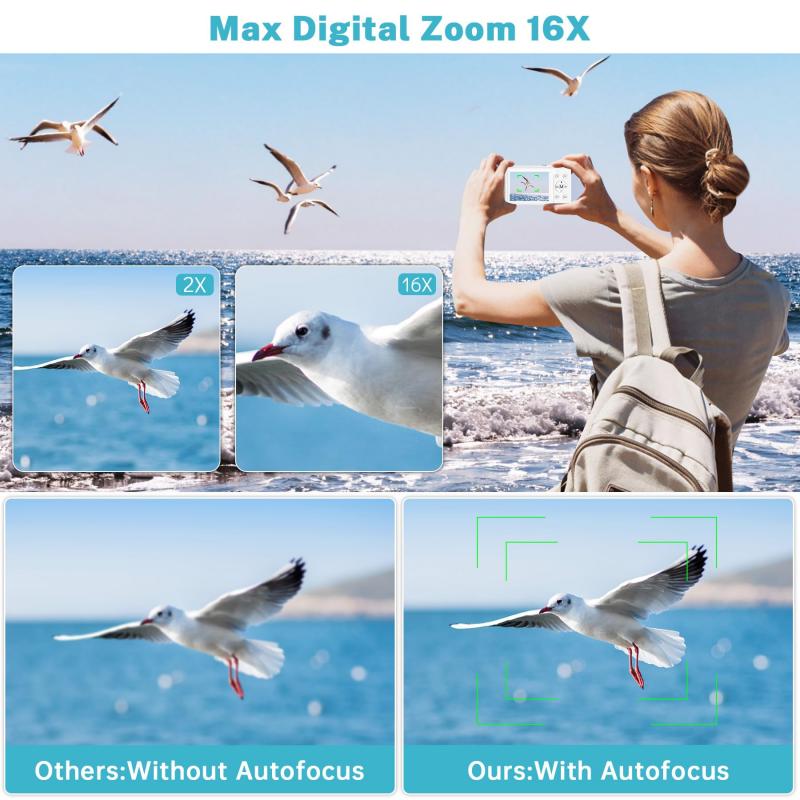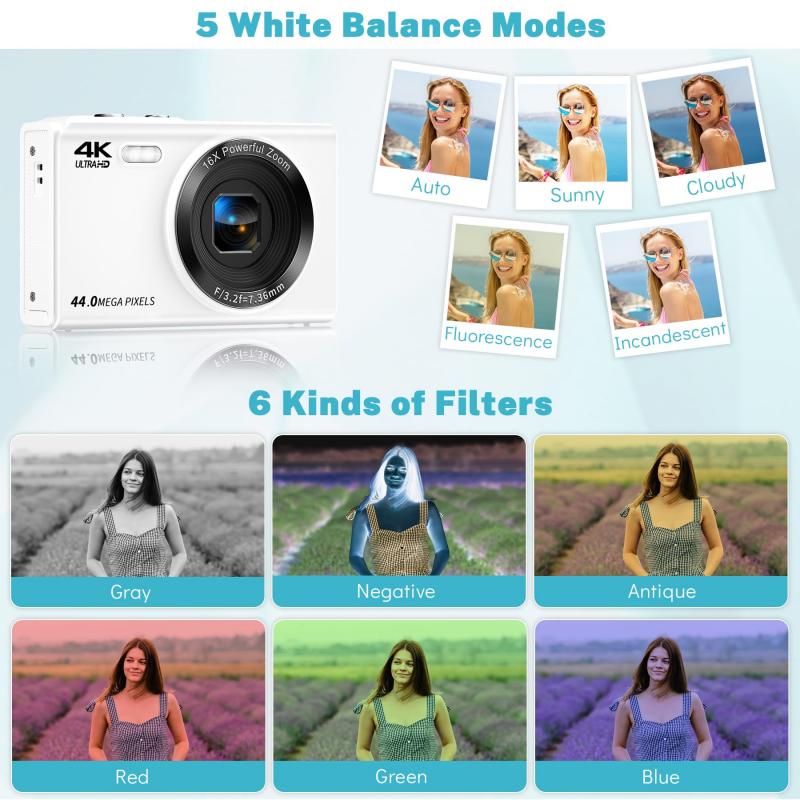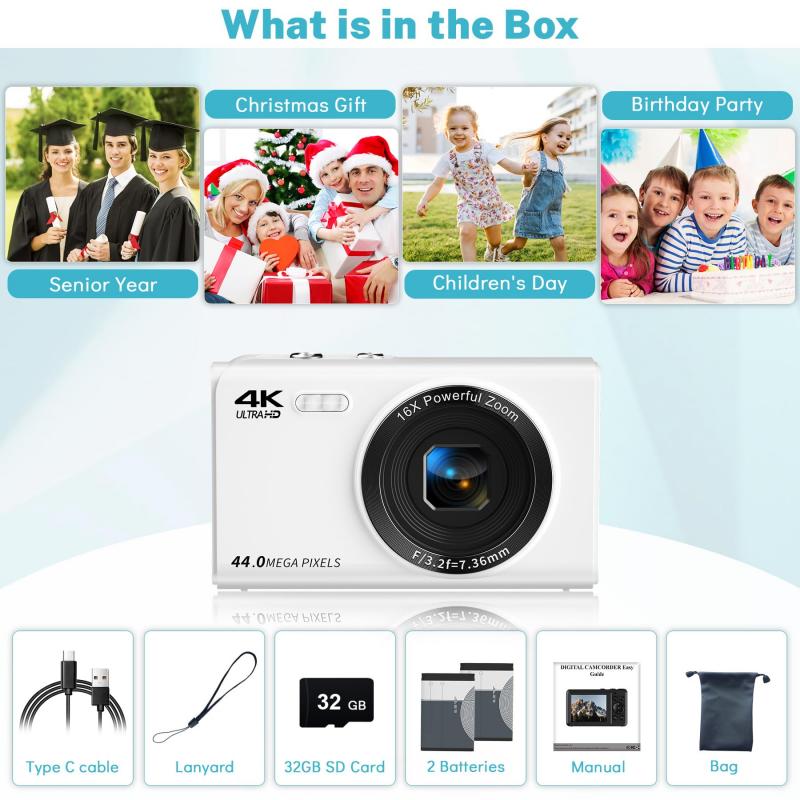How To Buy A Used Digital Camera?
Purchasing a used digital camera can be an excellent way to get high-quality photography equipment at a more affordable price. Whether you're a budding photographer on a budget, a seasoned professional looking for specific gear, or just someone interested in taking photos, buying used can offer significant savings. However, it requires more consideration and research than purchasing new. In this article, we'll explore the step-by-step process of buying a used digital camera, ensuring you make an informed and secure purchase while also saving money.
Understanding Your Needs

The first step in buying a used digital camera is understanding your specific needs. This involves:
1. Identifying the Purpose: Are you buying a camera for professional photography, casual use, or creating content for social media? Your intended use will heavily influence the type of camera you should consider.
2. Desired Features: Do you need a camera with high-resolution video capabilities, interchangeable lenses, robust low-light performance, or portability? Make a list of must-have features versus nice-to-have features to guide your search.
3. Budget Constraints: Determine how much you're willing to spend and remember that used cameras can vary widely in price depending on brand, model, and age.
Researching the Market

Once you have a clear picture of your needs, the next step is to research the current market offerings:
1. Compare Models and Brands: Investigate the different models and brands that meet your needs. Look at reviews, check specifications, and consider the pros and cons of each model. Websites like DPReview, CNET, and TechRadar can be valuable resources.
2. Price Checking: Review pricing information from various platforms where used cameras are sold, including eBay, Amazon, local classifieds, and specialized camera shops. This will help you understand the going rate for the models you are interested in.
3. Evaluate Market Trends: Pay attention to trends in pricing and availability. Certain models may drop in price when a newer version is released, presenting opportunities for savings.
Where to Buy Used Cameras

With your research in hand, the next consideration is where to make your purchase. Each option has its own set of pros and cons:
1. Online Marketplaces: Platforms like eBay and Craigslist offer a wide selection, but buyer beware – these come with risks related to the condition of the camera and the credibility of the seller.
2. Dedicated Camera Stores: Some retailers specialize in selling used cameras and often provide warranties or guarantees that ensure the camera is in working condition.
3. Photography Forums and Communities: These can be excellent places to find used gear from trustworthy sellers who are passionate about maintaining their equipment.
4. Local Classifieds: Websites or publications that list local second-hand goods offer opportunities to see the camera before buying, but tend to have less selection.
Evaluating Camera Condition

Purchasing a used camera requires diligent inspection to ensure it meets your standards and will function properly:
1. Check Aesthetics: Look for signs of wear and tear on the camera body, such as scratches, dents, or any damage.
2. Functionality Testing: Test the camera's functionality either in person or via a video demonstration. Ensure that all features work as expected, including autofocus, shutter release, zoom, and menu operations.
3. Sensor and Lens Quality: If possible, check the sensor and lens for any dust, scratches, or damage. Images from the camera can help reveal any hidden issues.
4. Battery Life: Assess the battery's health. If it's not in good condition, consider the cost of replacing it.
5. Shutter Count: Similar to a car's mileage, a camera's shutter count indicates usage. Lower counts generally mean less wear, although professional models are often built to withstand high numbers of shots.
Verifying Legitimacy and Authenticity
It's crucial to confirm the camera's legitimacy:
1. Serial Numbers: Ensure the camera's serial numbers are intact and match what is provided by the seller. This helps verify it's not stolen or counterfeit.
2. Purchase Proof: A legitimate seller should be able to provide the original purchase receipt, box, or other documentation.
3. Seller Reputation: Assess the seller’s feedback and reviews if you’re buying online. Reputable sellers are more likely to offer accurate descriptions and fair terms.
Negotiating the Price
Successful negotiation can lead to an even better deal. Here’s how:
1. Leverage Your Research: Use market data to justify your offer. Highlight comparable sales to support your proposed price.
2. Point Out Flaws: If the camera has any imperfections, use these as negotiation points for a reduced price.
3. Bundle Offers: Sometimes, sellers offer additional items such as lenses, bags, or memory cards. Bundling these can enhance the value of your purchase.
4. Payment Security: Arranging secure payment methods is crucial to protecting both you and the seller. Escrow services or platforms that offer buyer protection can be advantageous.
Final Considerations and Purchase
After ensuring everything checks out, you're ready to finalize your purchase:
1. Warranty and Return Policies: If purchasing from a store or online platform, check if there’s a return policy or any warranty remaining. It adds a layer of protection for your investment.
2. Confirm Details: Double-check all transaction details, including the final price, included accessories, and shipping information if applicable.
3. Secure Payment: Choose payment methods that offer protection, such as PayPal or credit cards.
What to Do Post-Purchase
After purchasing your used camera, there are several steps to maximize your investment:
1. Explore Accessories: Invest in accessories that complement your camera, such as tripods, additional lenses, or carrying cases.
2. Learn Your Camera: Thoroughly read the manual and explore online tutorials tailored to your specific model to make the most out of your camera.
3. Maintenance: Regular maintenance, including cleaning the sensor and lenses, ensures the longevity and optimal performance of your camera.
4. Insurance: Consider camera insurance, especially if you are a professional, to protect against theft or damage.
By carefully navigating the used camera market with the right approach and sufficient knowledge, you can find a camera that meets your needs without breaking your budget. Embrace the possibility of pre-loved photography gear that can deliver a wealth of creative opportunities and help you hone your skills. Buying a used digital camera is not just a financial decision; it's a step toward becoming a more informed and skilled photographer.
